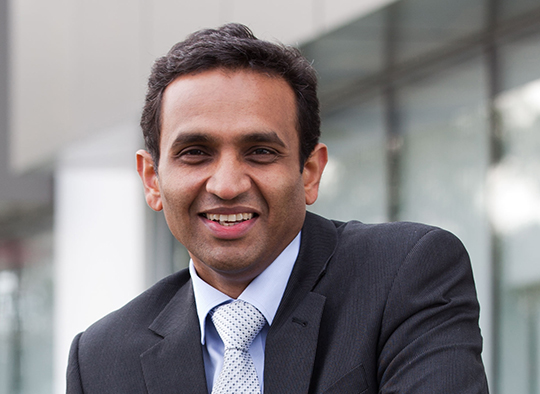Published by Container Management January/February 2019
Container Management talks to Jade Logistics’ Kaustubh Dalvi about the importance of adaptability in ensuring the successful implementation of new terminal operating systems.
“An in-house terminal operating system (TOS) offers its user full control of both the technical and financial aspects of its operations but, to quote the late Stan Lee, “With great power comes great responsibility.””

Speaking with Container Management, along with T.J. Rucker, President of Tideworks, Mehmet Ali Kayaoglu, CEO of GullsEye and Scott Peoples of Navis, Captain Kaustubh Dalvi (pictured above) emphasized the importance of a robust implementation methodology in a successful implementation. He also offers his opinion on the move towards digitalisation in the maritime industry and the value in sharing data.
Read excerpts below or view the full article.
“Another company that relies heavily on planning to guarantee a successful go-live is New Zealand-based third party vendor Jade Logistics Group, which follows a robust methodology when it implements its own TOS at a new site. First, it begins with the project analysis, then it configures the inside of the system and finally it migrates the data and initiates a go-live. Kaustubh Dalvi, the company’s President of Global Sales, said that it focuses a lot on the planning analysis phase to give users as much visibility as possible on what is going to happen. The company also aims to collaborate on a day-to-day basis to ensure that the go-live remains on track.
MOVE TOWARDS DIGITALISATION
“Recently, a tsunami of digitalisation has hit the market, with blockchain initiatives and artificial intelligence (AI) developments aplenty.
“With all this new technology making waves in the industry, it may be high time that the maritime sector learned to share. Other industries happily share and sometimes even trade data to help fuel innovation, yet companies in the maritime industry have yet to latch onto this way of thinking. Dalvi explained that all this new technology is useless without data and, in order to be successful, data sharing is the key. He told CM: “It’s like buying a Ferrari, keeping it in the garage and not using it.” Dalvi believes that the more data is shared, the more valuable it becomes.
“Jade Logistics as a whole is very keen on data sharing, and in December 2018 it launched CargoChain, its own information sharing platform for the global supply chain. According to CargoChain CEO David Lindsay: “Today’s consumers are demanding trust while those involved in the supply chain require full transparency and visibility.” The platform aims to provide this by integrating blockchain technology and sharing trusted information amongst all actors in the supply chain. CargoChain targets issues of data sharing across the global supply chain and, by providing its platform to application developer communities, aspires to “allow developers to solve the world’s supply
“Dalvi has started to see data sharing happen within the maritime sector and hopes that it will become a much bigger thing in the future. To further encourage the flow of data, he suggested that some of the larger players in the supply chain should start practising what he called “data philanthropy”. This involves companies giving away data for experimentation and innovation, but it is something that is not seen currently in the industry. Still, Dalvi hopes that this will change, as he believes that people have begun to learn and to see the value of sharing data.”

